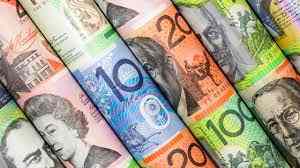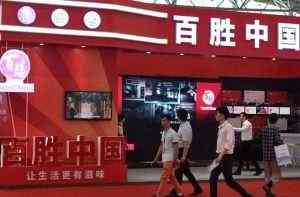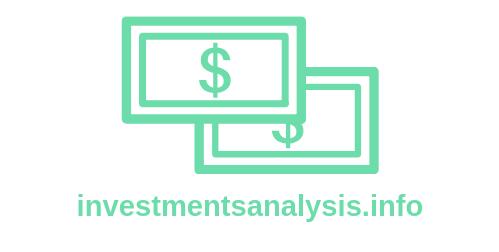
Trading of commodities: Commodity Trading: What It Is & How to Invest in Commodities The Motley Fool


Trading commodities is complex because factors like weather events and political strife that are often difficult to predict can have an outsize impact on prices. Keep reading to learn the basics of how commodities trading works and some alternative ways to invest in commodities. Retail traders looking to sell or buy commodities as CFDs will also appreciate that commodities are more volatile than currency pairs and stocks. For instance, meetings and announcements by OPEC have an immediate effect on oil prices. Members of the trade organization collectively account for 40% of the world’s oil supply.
Commodity-based money and commodity markets in a crude early form are believed to have originated in Sumer between 4500 BC and 4000 BC. Sumerians first used clay tokens sealed in a clay vessel, then clay writing tablets to represent the amount—for example, the number of goats, to be delivered. These promises of time and date of delivery resemble futures contract. For example, a commodities trader observing a prolonged drought period in Latin America might buy agricultural commodities in expectation of a smaller harvest reducing supply. Or strong economic growth in China might direct a trader to trade industrial metals in anticipation of strong demand. Conversely, a fundamental crude oil trading strategy might prompt a trader to short crude oil in response to signs of a recession reducing demand.

Successful commodity traders know the commodity trading secrets and distinguish between trading different types of financial markets. Every investment instrument is unique in terms of how best to generate profits from trading it. ETFs can buy futures contracts or invest in commodity company stocks. They may offer instant access to a diversified range of assets, which could take a longer time to build for yourself.
Other commodity markets
Again, while there are occasional sharp and volatile movements in commodity prices, commodities typically experience overall bull or bear trends that last several years. So one of the commodity trading secrets is simply the old trading adage, “The trend is your friend”. The supply and demand quotient for basic raw materials is usually much less subject to ongoing volatility than is the case with stocks. But generally speaking, there tend to be sustained periods of time when high demand or short supply controls a market, driving prices higher, or when oversupply or lack of demand drives prices lower.
Due to the presence of fees and high capital requirements, making investments may not suit most Forex retail traders. Well, in one year when he made over a million dollars trading cotton futures, he ended up filing a net loss in trading for the year. That’s right – his horrifically bad silver trading had more than wiped out every bit of his huge profits from trading cotton. “EU parliament approves moves to end ‘abusive’ speculation in commodity markets”. Dodd–Frank was enacted in response to the 2008 financial crisis. It called for “strong measures to limit speculation in agricultural commodities” calling upon the CFTC to further limit positions and to regulate over-the-counter trades.

Traders mostly sell off the futures to realize a profit or roll over the contract. Commodity trading holds an advantage over illiquid investments such as real estate since any money in your account that is not being used to margin market positions you’re holding is readily available to you at any time. This article covers physical product markets but not the ways that services, including those of governments, nor investment, nor debt, can be seen as a commodity. Articles on reinsurance markets, stock markets, bond markets, and currency markets cover those concerns separately and in more depth. In 1900, corn acreage was double that of wheat in the United States.
Should you trade commodities?
ETNs are unsecured debt securities designed to mimic the price fluctuation of a particular commodity or commodity index. Most futures contracts offer the possibility of purchasing options. Futures options can be a lower-risk way to enter the futures markets.

WTI crude oil is traded through NYMEX under trading symbol CL and through Intercontinental Exchange under trading symbol WBS. Brent crude oil is traded in through Intercontinental Exchange under trading symbol BRN and on the CME under trading symbol BZ. Gulf Coast Gasoline is traded through NYMEX with the trading symbol of LR. Propane is traded through NYMEX, a subsidiary of Intercontinental Exchange since early 2013, via trading symbol PN. Prior to the introduction of ETCs, by the 1990s ETFs pioneered by Barclays Global Investors revolutionized the mutual funds industry. By the end of December 2009 BGI assets hit an all-time high of $1 trillion.
Agricultural commodities include corn, soybeans, wheat, rice, cocoa, coffee, cotton, and sugar. In the agricultural sector, grains can be very volatile during the summer months or during any period of weather-related transitions. For investors interested in the agricultural sector, population growth—combined with limited agricultural supply—can provide opportunities for profiting from rising agricultural commodity prices. In the past, commodities trading required significant amounts of time, money, and expertise, and was primarily limited to professional traders.
OTI serves as the CFTC’s financial technology innovation hub, driving change and enhancing knowledge through innovation, consulting/collaboration, and education . OTI regularly advocates for the advancement of responsible innovation, industry collaborations, and public outreach and education. Investopedia requires writers to use primary sources to support their work.
Why trade commodities with Capital.com
Commodity prices are driven by supply and demand, which can be affected by economic activity, weather conditions, transportation and storage factors, geopolitical events and the value of the US dollar. Price action trading is well suited to quick decision making as traders do not need to wait for signals from technical indicators that can lag behind price movements. Commodities buyers, such as manufacturing companies, also make physical purchases to take delivery.
To invest in futures trading, you need to set up an account with a specialty brokerage account that offers these types of trades. Given the importance of commodities in daily life, commodity trading began long before modern financial markets evolved as ancient empires developed trade routes for exchanging their goods. How to Invest in ETFs Exchange-traded funds let an investor buy lots of stocks and bonds at once. The most straightforward way to invest in commodities is by physically buying a commodity.
Major global economic trends and technological advances can change the way that markets trade. For example, the emergence of China as a manufacturing hub has increased demand for energy and metals, and redirected trade flows. While futures prices reflect how much the markets believe a commodity will be worth when the future expires, spot prices show how much it is worth right now – or ‘on the spot’.
Commodities Stocks
Commodity traders may directly invest in commodities, such as buying physical gold bars or trading futures contracts. They can also speculate on the price movements of commodities through CFD trading. For many years, West Texas Intermediate crude oil, a light, sweet crude oil, was the world’s most-traded commodity. It is the underlying commodity of Chicago Mercantile Exchange’s oil futures contracts. WTI is often referenced in news reports on oil prices, alongside Brent Crude. WTI is lighter and sweeter than Brent and considerably lighter and sweeter than Dubai or Oman.
Note that contracts for difference are considered short-term investments due to overnight fees. You may be familiar with trading stocks, but what is trading commodities? Commodities trading offers a way to diversify beyond stocks by buying and selling raw materials such as oil and natural gas, base and precious metals, as well as agricultural products, including wheat, coffee and sugar. Because the markets can be very volatile, direct investment in commodity futures contracts can be very risky, especially for inexperienced investors. Much of commodity trading amounts to speculation, not investing. Unpredictable factors like the weather, disease, and natural disasters can have huge effects on commodity prices in the short term.
